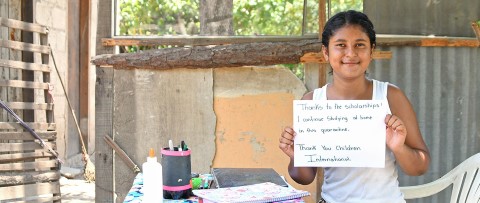- Thought Leadership

A steady income means an increase in every young adults’ standard of living and, for many, a chance to grow through further education and professional advancement. Our employment programs aim to increase the number of young adults who have a formal job by helping youth gain marketable skills through continuing education and access to the job market via job-readiness skills.
Over the years, our programs, including Into Employment®, HOPE scholarships and Career Readiness, have steadily grown in enrollment and completion. The youth participating in these programs are highly motivated and tenacious – and, as our current employment program participants in Colombia have shown – unwavering in their dedication to building better futures for themselves.
Despite facing a global pandemic, the participants and our local staff in Colombia quickly adapted to their new reality by using remote learning tools for life – and job-skills training and stayed connected through social media. To date, they have 400 members in their Facebook groups and nearly half of the targeted population have logged on to the virtual platform. Youth also are motivating each other to participate.
HOPE scholar Laura shared a video in which she tells her peers: “It has been very interesting to learn, to meet other HOPE scholars from other areas.” Laura said she uses the platform daily and stressed how important she finds the life-skills and self-awareness training.
Each year, Children International awards thousands of HOPE scholarships for university or vocational school. In addition to financial assistance, HOPE scholars take part in life-skills and career-readiness training that helps ensure they are prepared to find stable employment once they have graduated.
Because of the pandemic, however, young people in school this year have experienced a disruption in their education. The need for scholarships is likely to increase as meager family resources are needed for basic essentials such as food. Where possible, schools and universities are shifting to online courses, but the ability to pay for this is still a barrier to many. In Colombia, for example, where the majority of students attend vocational school, 67% of scholarship recipients have moved to online training. The remaining 33% are not receiving technical training because they study in the health sector, which is currently suspended.
Comments
You must be logged in to comment. If you have an account, click here to log in.